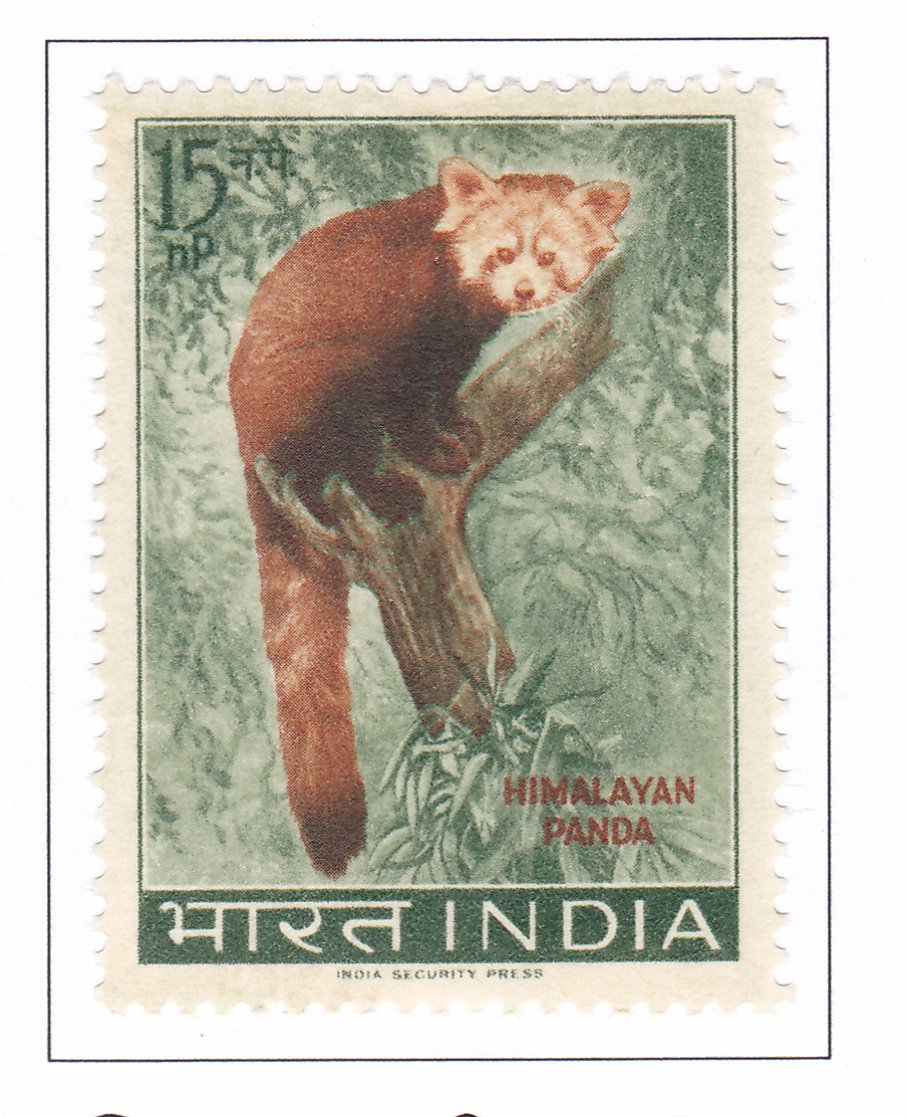Himalayan Panda (Ailurus fulgens)

Technical Data
| Stamp Set | Wild Life Presevation |
|---|---|
| Date of Issue | October 7, 1963 |
| Denomination | 15 np |
| Quantity | 5,000,000 |
| Perforation | comb 13 |
| Printer | Security Printing Press, Nashik |
| Watermark | Asokan Capital Multiple [Up] |
| Colors | Green | Orange brown |
| Catalog Codes |
Michel IN 359 Stamp Number IN 363 Yvert et Tellier IN 149 Stanley Gibbons IN 473 |
| Themes | Animals (Fauna) | Mammals | Pandas |
The Red Panda, also known as the Lesser Himalayan Panda (Ailurus fulgens), is undeniably one of nature’s masterpieces, boasting breathtaking beauty and unique characteristics. Sporting a coat of bright chestnut fur adorned with white facial markings, pointed ears, and a distinctive black nose, these creatures captivate observers with their enchanting appearance. Their darker underparts and subtly ringed tails add to their allure.
Inhabiting the middle ranges of the central and eastern Himalayas, Red Pandas can be found in regions such as Nepal, Bhutan, Sikkim, and the North East Frontier Agency of India. They thrive in the temperate bamboo forests at elevations ranging from about 6,000 to 12,000 feet. Despite their relatively small size, they are formidable omnivores, feeding on a diverse diet that includes bamboo leaves, shoots, and roots, as well as fruits, small birds, eggs, and insects.
Remarkably, Red Pandas possess a docile nature and are easily tamed, making them delightful companions. Their cat-like appearance, combined with bear-like attributes, has earned them the endearing moniker of “cat-bears.” Consequently, they have gained popularity in zoos across Europe and America in recent years, where captivated audiences marvel at their charm and elegance.
